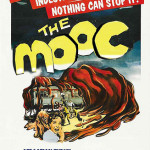“Instreamia” Shakes Loose Moss By Launching Spanish Language Mini-MOOC
By Paul Glader on January 21, 2013
Continuing Education, Domestic, Feature, Language Learning, MOOCs, OER - Open Educational Resources, Open Source Education, Personalized Learning, Required, Startups, Technology
By Paul Glader
BERLIN — Scott Rapp and Ryan Rapp are purveyors of a new twist in the MOOC trend, what I’m calling ‘’mini-MOOCs.’’ That is, a startup or professor launching an open online course intended for the masses on their own, without the help of a large university or consortium of universities.
Scott, a former Spanish teacher turned computer data systems specialist, is teaching a free Spanish language MOOC course starting today (Jan. 21). It’s a way to test the concept of their Instreamia language-learning startup. The Rapp brothers are a team to watch in the ed tech space.
In the Wild West of MOOCs, their experiment shows how some teachers and entrepreneurs see the trend as a way to either make a buck, test an idea, build an audience, market their product or, all of the above. In addition to powerhouse MOOC providers out there such as Coursera, edX and Udacity, we are seeing superstar economics professors Tyler Cowen and Alex Tabarrok launched a MOOC course in development economics at their Marginal Revolution University via their popular blog Marginal Revolution. Similarly, the Rapp brothers are programmers and consultants turned startup entrepreneurs who are launching a MOOC Spanish course to boost their startup, Instreamia.
Scott was a data systems engineer at Deloitte & Touche consulting firm, where he helped Fortune 500 companies re-engineer their systems. He learned Spanish and lived in Honduras once. His brother lived in Japan and learned Japanese. They like learning and teaching languages and had an idea for a product they thought would be better than Rosetta Stone and others on the market.
‘’’We want to be the experts in blended learning rather than in the consumer markets where Rosetta and others are,’’ Scott says. ‘’The teachers like it. We have interviewed a dozen teachers and administrators.’’ More than 7,000 users (many of them teachers) have signed up to use the product so far and more than 1,500 have enrolled in a Spanish MOOC course Scott is teaching starting this month.
So they built Instreamia, which uses open source video such as popular music videos in Spanish or other languages to ask you questions and teach you a song. ‘’It teaches you as you go,’’ Scott explained during a recent phone call and software demo. He programmed Instreamia to track when you know a word by listening, reading, writing and speaking. They are launching Instreamia versions in English, Spanish, Japanese and Portuguese.
The New York City-based brothers have created dozens of exercises to guess the correct translation, write a word, chose a sound for the word. They use a speech tagger that analyzes parts of speech for each word. ‘’It’s an intelligent learning platform that adapts to users needs as they go along,’’ Scott explains. Scott has another startup called BlueCube, which does data systems engineering for large companies.
The brothers are waiting on a patent for some of the adaptive learning functions they built into the system. They’ve boot-strap funded ($50,000 or so) the startup so far. They are partnering with Blackboard in coming months to offer Spanish lessons via Blackboard’s Coursesite platform. The Rapps hope to integrate into high schools and colleges with that partnership and charge $30 per classroom of 30 students per year in an asynchronous format.
Meanwhile, they launched a MOOC, in Spanish for free to build their marketing and buzz. Scott will teach the course, which he says is equivalent to a first year university course (he taught spanish for two years at Brigham Young University in Provo, Utah). In addition to marketing the Instremia brand, Scott says he will also pick up valuable data about usability of the product and the course will help them ‘’prove the quality of our content and the efficacy of our product.’’
The Spanish MOOC will use Google hangouts, where groups of 10 can practice with each other. So far, 1,300 have signed up for the course. That surpassed Scott’s initial goal of 1,000 students. Now, he hopes to get to 5,000 students before the late January start date. When the x-week course ends, the content will remain up for students to use but Scott doesn’t plan to keep teaching the course in coming semesters.
He thinks this is one of only two Spanish-language MOOCs on the Internet he knows of. The other one is from a community college named Wallace State. ‘’We think there is significant likelihood we’ll want to do a MOOC for English as a second language. Probably millions of people from countries like India, Philippines and Central America. the reason they love MOOCs so much.’’
Are you seeing other examples of this Mini-MOOC trend (free, open source courses by a startup or organization)? Tell us about it in the comments section below.
@PaulGlader is a European Journalism Fellow at Frei Universität in Berlin and co-founder of @WiredAcademic. He’s been a reporter for The Wall Street Journal, The Washington Post and Associated Press and has written for Spiegel Online, FastCompany.com, ESPN.com and others.
Related Posts
Internet highlights
- Online Casinos
- Best Non Gamstop Casinos In The UK
- Casinos Online España
- Casino En Ligne Fiable
- Non Gamstop Casino
- Online Casinos UK
- Best Online Casino Canada
- Meilleur Casino En Ligne
- Non Gamstop Casinos
- Casino En Ligne Fiable
- Non Gamstop Casino Sites UK
- Non Gamstop Casino
- Casinos Not On Gamstop
- Non Gamstop Casinos
- Best UK Casinos Not On Gamstop
- Sites Not On Gamstop
- Casinos Not On Gamstop
- Sites Not On Gamstop
- Non Gamstop Casinos
- UK Online Casinos Not On Gamstop
- Betting Sites
- Uk Horse Racing Betting
- Top UK Casino Sites
- Casino Non Aams Sicuri
- Casino Non Aams Sicuri
- Casinos Not On Gamstop
- Crypto Casino
- Meilleur Casino En Ligne
- Sites De Paris Sportifs Autorisés En Belgique
- Nhà Cái Uy Tín
- ブック メーカー 日本 おすすめ
- Nouveau Casino En Ligne 2026
- Casino En Ligne Argent Réel
- Meilleur Casino En Ligne
- Siti Non Aams Legali In Italia
- Migliori Siti Casino Non Aams
- Meilleur Casino En Ligne France 2026
- Nouveau Casino En Ligne 2026
- казино онлайн україна
1 Comment
Primeras impresiones (#spanmooc) | Reflections on MOOCs and Online Learning
Reply


Tips & Pitches
Latest WA Features
-
Online Courses Are Expanding, Along With Questions About Who Owns The Material
-
Why Size Matters: Consolidation Sweeps Across US Higher Ed
-
Trend: Corporate U Employers Offering Just In Time Education To Workers
-
Subterfuge & Skullduggery In The College Rankings Game
-
“Instreamia” Shakes Loose Moss By Launching Spanish Language Mini-MOOC
Domestic, Education Quality, For-Profit, Friend, Fraud, or Fishy, K-12, Legislation, Opinion, Personalized Learning, Regulatory, Required, Universities & Colleges - Apr 29, 2014 - 0 Comments
Michael Horn: NCAA March Madness Followed By April Blunder In Online Learning
More In For-Profit
- The Economy Is Forcing Tuition To Fall Rapidly At Private, For-Profit Colleges
- Kamenetz: Jeb Bush As Controversial Leader Of Aspen Task Force on Learning & The Internet
- Columnist Ryan Craig: The Best Of Times Could Return As For-Profit Edu Invests
- Bubble Analysis: Trace Urdan on Why This Era of Ed Investing Could Be Different
- A Blended Path? How American Honors Cuts Cost of Four Year Degree by Over a Third
Community Colleges Cost of Education Domestic For-Profit Required Student Loans Universities & Colleges
Cost of Education, Domestic, Education Quality, Friend, Fraud, or Fishy, Opinion, Personalized Learning, Required, Technology, Universities & Colleges - Jan 17, 2014 - 0 Comments
Online Education As A Postmodern Societal Response
More In Technology
- MakerBot Academy: A 3-D Printer In Every Classroom
- Michael Horn: A Look Behind The Curtain At How A MOOC Is Made
- Koller, Khan and Agarwal At The NYT’s Schools of Tomorrow Conference
- Video: New NESTA Report, Three Steps To Assess Digital Innovation in Education
- Norwegian Teens Publish Their Own Guide To Teaching and Learning In Web 2.0
Blended Learning Education Quality International K-12 Open Source Education Personalized Learning Required Technology
Domestic, Education Quality, For-Profit, Friend, Fraud, or Fishy, K-12, Legislation, Opinion, Personalized Learning, Regulatory, Required, Universities & Colleges - Apr 29, 2014 - 0 Comments
Michael Horn: NCAA March Madness Followed By April Blunder In Online Learning
More In Friend, Fraud, or Fishy
- Online Education As A Postmodern Societal Response
- Apple Tightens Its 94% Choke-hold On The Education Tablet Market
- Michael Horn: Why Obama’s Proposals Won’t Entirely Revolutionize HigherEd
- Columnist Ryan Craig: The Curious Case Of HigherEd Accreditation
- McGraw-Hill Executive Speaking About Big Data: “Don’t look at us, look at Joe Camel”
Domestic Ebooks Education Quality Ereaders Ethics Friend, Fraud, or Fishy K-12 Publishers & Curriculum Required Textbooks











[...] online de gestión de cursos gratuita de Blackboard. El MOOC ha sido creado primordialmente para comprobar la viabilidad de Instreamia, un servicio creado por los hermanos Scott y Ryan Rapp, que utiliza los vídeos de TED y de [...]